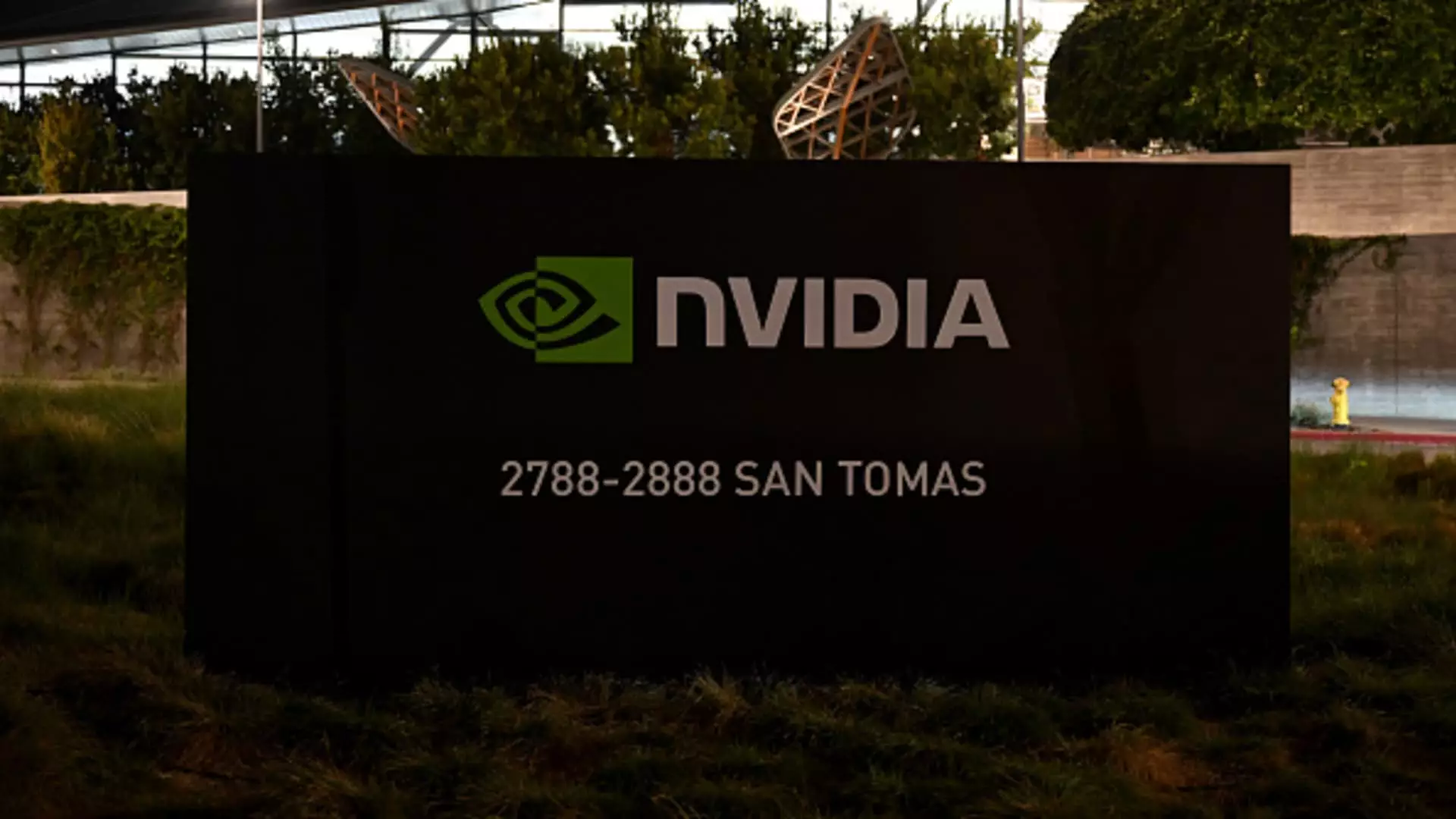The AI Revolution: Navigating Investment Opportunities Amid Uncertainty

The tech landscape has been dramatically reshaped by advances in artificial intelligence (AI), sparking both excitement and anxiety among investors. A recent speech by Nvidia’s CEO Jensen Huang at the Goldman Sachs Communacopia + Technology Conference brought renewed optimism to the sector. His assertions regarding the transformative potential of generative AI underscored the considerable growth opportunities that lie ahead, specifically within data centers, which he predicts could evolve into a trillion-dollar industry. This article dissects Huang’s comments and the subsequent market reactions, analyzing how various players are positioning themselves at the intersection of AI and investment.
Huang’s discussion at the conference centered around the notion that generative AI is not just a technological tool; rather, it represents a fundamental skill that is now crucial for businesses navigating the new digital landscape. This perspective bridges a gap between technological innovation and actionable investment strategies, causing Nvidia’s shares to climb over 8% following his comments. The enthusiasm wasn’t confined to Nvidia alone—several semiconductor stocks, including Advanced Micro Devices (AMD) and Broadcom, witnessed notable gains. Portfolio manager John Belton remarked on Huang’s insights as promising signals of sustained growth for at least the next three years, linked to the expansion of manufacturing capacity through partnerships like those with Taiwan Semiconductor Manufacturing Company (TSMC).
As the excitement around AI grows, investors find themselves with a plethora of opportunities to explore. Analysts like Angelo Zino express that companies entrenched in hardware development are likely to reap the benefits in the short term. This includes AMD’s ongoing ramp-up of GPU production and networking firms such as Broadcom and Marvell, which are poised to gain from tailored silicon chips utilized by tech giants like Meta Platforms. Furthermore, Micron Technology may see rising profits as demand for memory products surges in tandem with AI advancements.
However, the long-term landscape is characterized by an intricate web of emerging technologies and startups. For instance, Apple’s recent iPhone 16 launch, equipped with AI capabilities branded as “Apple Intelligence,” sparked discussion, albeit with some analysts viewing the announcement as underwhelming. Zino maintains a favorable outlook on Apple, especially as consumer interest in its Vision Pro headset grows. Conversely, the general unease surrounding Apple’s updates reflects the complex dynamics within the tech market.
The AI boom is not without its risks. The flood of companies entering the AI sector raises concerns about market sustainability, with some investors drawing parallels to the dot-com bubble of the early 2000s. Wealth managers like Mark Malek point out that the most groundbreaking developments are often emerging from private markets rather than publicly traded entities. The ubiquitous hype surrounding AI has led to the proliferation of numerous startups, igniting fears of an eventual market correction.
Despite these concerns, major players like Microsoft, Alphabet, and Amazon are positioned to continue benefiting from AI’s upward trajectory. Their strategic investments in cloud technologies and AI integrations within their existing platforms place them at an advantage. Nevertheless, the path ahead is fraught with uncertainties, as investors must remain vigilant to avoid pitfalls reminiscent of past tech bubbles.
As the discourse around AI evolves, so too does the landscape for investors. Jensen Huang’s optimism offers a glimmer of hope and presents clear avenues for short-term investment. However, the complexities of this new era warrant a cautious approach. Investors should seek to balance their portfolios, weighing the immediate benefits of established hardware players against the unpredictable nature of emerging AI-driven startups. As the industry continues to mature, understanding the nuances and shifts within the market will be crucial in navigating this promising yet volatile terrain. Investors should stay informed and adaptive, ensuring they are well-positioned to harness the transformative power of AI while mitigating inherent risks.





